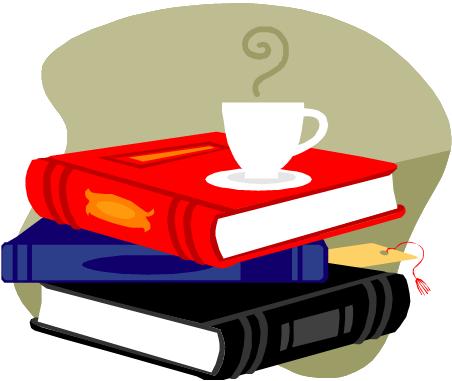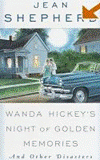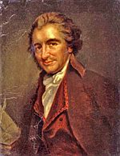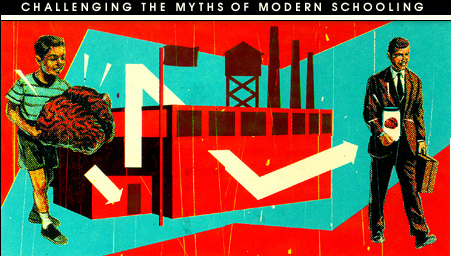
 |
Wanda Hickey's Night
|
Please go to the new Coffee Coaster site implemented more gracefully in Wordpress. This page: http://brianrwright.com/CoffeeCoasterBlog/?p=4322 |
 1971, Doubleday
1971, Doubleday
[stories originally appearing in Playboy], 350 pages
For some unaccountable reason, I discovered I was
a consumate polka dancer. The polka is a true soul dance. You don't learn it; it engulfs you and sweeps you on in a flood of braying coronets and tootling clarinets and the thundering syncopation of bass drums and cymbals. The drummer, a heavy-set
Pole, squatted like a toad and his equipment, operating with the machinelike precision of a pile driver. I bounced and sweated, Josie clinging and hopping, ducking and bobbing as one born to the beat...
— from "The Star-Crossed Romance of Josephine Cosnowski"
Jean Shepherd (1921-1999) is a writer, humorist, and journalist. Many of you will recognize him as the author of the short stories on which the popular perennial Christmas movie A Christmas Story is based. Wanda Hickey's Night of Golden Memories is a collection of several of Mr. Shepherd's reminiscences that originally appeared in Playboy in the late 1960s and early 1970s, of which the Wanda Hickey essay is the final installment. Right from the gitgo, reading the titles, you realize you're in for a superior reading experience, as each of them conveys an American-original young-male sprout's world in all its complexity:
The Wimpy doll was special:
...at one point in American history there was actually a Popeye radio program.... They offered you a choice of a Wimpy doll, a Popeye doll, an Olive Oyl doll, or an Alice the Goon doll if you ate enough soup and sent in the labels. ...I was probably the only kid in the United States who didn't order a Popeye doll; I went for Wimpy, a down-at-the-heels moocher who lived only to stuff his gut with hamburgers. I identified with him.
Then, of course, the featured essay, Wanda Hickey, who is the adoring romantic girlfriend who attends the junior prom with Ralph at the Cherrywood Country Club. I love the way Shepherd sets up his stories, and to configure Wanda Hickey's special night, Shep is performing his one-night-a-week forced watching of educational TV. This evening the TV announcer is discussing rites of passage for a Micronesian tribe:
"When an Ugga Buggah reaches puberty, the rites are rigorous and unvarying for both sexes. Difficult dances are performed and the candidate for adulthood must eat a sickening ritual meal during the postdance banquet. You will also notice that his costume is as uncomfortable as it is decorative."
So we are taken to the modern-American ritual of going to the prom. Even though the actual era of Jean Shepherd's prom was the mid-1930s, the ritual hadn't changed much through the 1950s—the promotional art and TV imagery for Jean Shepherd's nostalgia pieces suggest a late-1940s/early-1950s period (for example, the front cover of the book shows a ~1953 Ford convertible), I'm guessing for Baby-Boomer marketing reasons—and even into modern times with Generation <letter du jour>. For the guy there's the agonizing process of asking the right girl, then the tux, the corsage, the car, the money, the dancing, and the post-prom shenanigans; for the girl it's often seen as a dress rehearsal for a "queen for a day" wedding and the measured release of feminine virtue to secure the best possible husband-and-father-hood material.
The prom is still a big deal and undoubtedly will remain so until the human race transcends puberty. Under the pen of Jean Shepherd, at least from the boy's perspective, the prom is also a laugh of self-recognition per minute. The vast majority of my male peers will reexperience the awkward business of winding up in the right tuxedo, then the sweating and itching after it's been worn a while (they don't call 'em monkey suits for nothing!). You'll also sense the many aromas as perspiration mixes with perfumes, and the brushing together of your trussings with her even more elaborate ones in a humid auditorium, while some "Mickey Eisley and His Magic Music Makers" perform a sultry slow-dance number with the lights low.
Huggin' and a muggin' for a higher love is what it's all about.
But what sets apart the Shepherd reminiscences is the honesty and poetry with which he conveys not only how he wanted to perceive himself, but also the reality of how he was:
Dark and sensuous, the dance floor engulfed us all. I felt
tall, slim, and beautiful, not realizing at the time that everybody feels that way wearing a white coat and rented pants. I could see myself standing on a mysterious balcony, a lonely, elegant figure, looking out over the lights of some exotic city, a scene of sophisticated gaiety behind me....
Oh, wow! The lights faded even lower. Only the Japanese lanterns glowed dimly—red, green, yellow, and blue—in the enchanted darkness. It was unquestionably the high point of my existence.
And I'll let you read the hilarious denouement.
The stories work wonders on the imagination.
Sometimes people don't see the advantage of reading and imagining as opposed to simply watching a story on television. When you read (or listen to) the Jean Shepherd vignettes—as in the tradition of Garrison Keillor and others who tell their stories—the mind is transported as an active visitor into the storyteller's universe. All images and other sensual information strike you much more richly: you recreate the environment as if it were your own. And the humor of Shepherd's descriptions is so genuine as to be sublime.
If this is your kind of thing, is all I'm sayin'...
[This book, along with another collection In God We Trust: All Others Pay Cash (the stories from which were the main episodes of The Christmas Story), puts me in such a joyful frame of mind that the problems of the day melt away to nothing remotely meaningful: as if creativity and humor are all that exist, side by side.] I'd like to close my review with a particularly sensually rich [Shepherd is really into smelling] paragraph from "Scut Farkus and the Murderous Mariah" where Ralphie works intently on his top in the family basement:
As the dim bulb illuminated a faint circle on the gray concrete floor, I scratched out a mark in the exact center of the pool of light for a target and stepped back into almost full darkness. I could smell the moldering old tires that my father kept hanging on the walls just in case someday he might pick up another Hupmobile, and the mildewed Sunday papers of years back that lay piled against the concrete-block walls, and the scent of countless generations of field mice who had lived out their lives in this basement, and the dusty Mason jars filled with grape jelly and strawberry preserves that lined the plank shelves under the steps, and the sharp rubber smell—bitter and strong—of the coiled garden hose under the workbench, and the more subtle but pervasive aroma of a half ton of damp soft coal in the pitchblack bin, all held together with the soapy dankness of the drains covered with perforated iron lids, that every week carried the family's used water back into Lake Michigan.
You want wow? This is wow. It's pure poetry. I wish I could write like that. I wish I had his subtle emotionally descriptive vocabulary. I wish I could remember things that well. Perhaps that's his appeal, too: Shepherd's books go a long way toward filling in the blanks that seemed to give our lives meaning and significance so long ago. Jean Shepherd: An American treasure who deserves a hearty rediscovery.
###
###

Free School
Movement

 Click banner to order, click here for book review
Click banner to order, click here for book review
 Click banner to order, click here for book review
Click banner to order, click here for book review
 |
 |
|||
| New Pilgrim Chronicles Forum |